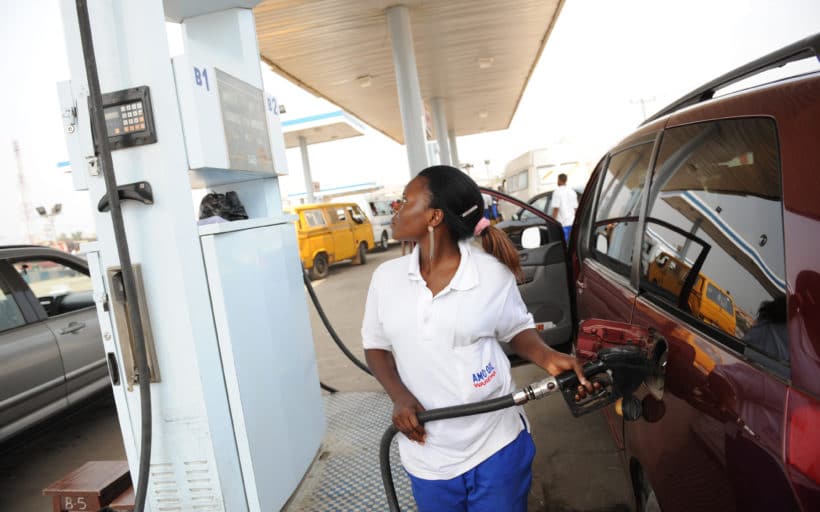
LONDON, July 4 (Reuters) – Abdoulaye Diallo is paying over 50% more to fill up his “thiak-thiak” motorbike taxi in Keur Mbaye Fall, a suburb of Senegal’s capital Dakar, than he was before the government began lifting fuel subsidies in January.
Diallo, 25, is already navigating punishing inflation and deadly political riots, but his biggest problem is he cannot pass on the cost of filling his fuel tank, which has risen to 3,500 CFA ($5.82), from 2,000 CFA last year.
“The customers…don’t realize how difficult it is,” Diallo said. “That’s the kind of thing we need to protest against.”
Senegal, like Nigeria and Angola, is removing costly fossil fuel subsidies – a move once considered politically unthinkable but which has become a necessity due to crushing debt, a spike in borrowing costs and high fuel prices.
Global spending on fossil fuel consumption subsidies doubled to a record $1 trillion last year as the war in Ukraine sent oil prices skyrocketing, according to the International Energy Agency (IEA).
Senegal’s fuel and electricity supports gobbled up 4% of GDP last year, while Nigeria spent $10 billion capping the price of petrol. Angola spent 1.9 trillion kwanza ($2.3 billion) in 2022, which is more than 40% of what the IMF estimated it spent on social programmes.
“The cost is too high for us to continue to pay,” said Stanley Achonu, Nigeria director of the ONE Campaign, which advocates for sustainable debt and an end to poverty.
SHEER FISCAL NECESSITY
Nearly every country on earth has some fossil fuel subsidies, according to the Organisation for Economic Co-operation and Development (OECD). Costs ballooned when governments stepped in to shield citizens from punishingly high energy bills after Russia invaded Ukraine.
Goolam Ballim, chief economist with Standard Bank in Johannesburg, said African countries were removing them “out of sheer necessity” due to the toxic combination of rising borrowing costs and already large debt piles.
A borrowing spree during the last decade of low interest rates saw debt-to-GDP ratios in many African nations double or triple; ONE Campaign figures show that debt to GDP across Africa roughly doubled to 24% in the past decade.
Now, high costs have effectively locked many out of international bond markets. China, the lifeline lender to some African nations, has also tightened its purse strings.
After COVID-19 battered economic growth and the war in Ukraine boosted fuel and food prices, African countries had no “powder in the keg” to fund subsidies and kick-start economic recoveries.
“Credit spreads for African countries have surged,” said Ballim, indicating rising borrowing costs. “They’re about three times that of the average of emerging markets.”
According to the World Bank, almost half of the countries in sub-Saharan Africa are in or at high risk of debt distress.
FEEDING THE RICH
For people like Diallo, the timing is tough. Inflation in Senegal hit a record 14.1% last year, though it has since slowed, while in Nigeria it remains above 22%, its highest in decades. Angola’s double-digit inflation is likely to stay high due to the weakening kwanza.
In Angola, gasoline prices nearly doubled to 300 kwanza ($0.3645) per litre last month, prompting deadly protests, while Nigeria abandoned its last effort to cut subsidies in 2012 after crippling strikes.
But David Amaglobeli, deputy division chief in the IMF’s fiscal affairs department, said tough times should not stop subsidy removal.
“This money could be used or could be put to more productive use,” he said, adding that wealthier people disproportionately benefited from price caps, while printing money at the central bank to pay for them boosts inflation.
Widespread smuggling, which has “virtually disappeared” since Nigeria lifted subsidies, also drained cash that states could use boost economic growth for all citizens, he said.
Zambia cut subsidies as part of its IMF bailout after a painful 2020 default. Subsidy spending fell from 2.4% of GDP in 2021 to 0.4% in 2022, enabling a proportional rise in funding for education, health and social protection. Supporting vulnerable households “more or less immediately” is essential, Amaglobeli said.
Gregoire Garsous, senior policy analyst with the OECD, agreed.
“This is why we tend to think (subsidies) should be progressively phased out, and with policies that would replace them for those that would be hurt,” he said.
Nigeria will get $800 million from the World Bank to help support its poor, but Achonu said its registry of vulnerable citizens had only about 10 million people, compared with its more than 130 million poor.
The World Bank estimates that subsidy removal, and scrapping foreign exchange controls, would save Nigeria some 21 trillion naira ($27.49 billion) from 2023 to 2025.
Angola said it would phase its subsidy removal through 2025, and the savings would go towards cash transfers to poor citizens and to support agriculture, fishing and public transit.
Senegal will also slowly remove price supports through 2025, transfer cash to its poorest and continue carefully targeted subsidies for public transit. But those measures leave out urban taxis like Diallo’s motorbike.
“Changing prices will be tough for us,” Diallo said. “The authorities should take responsibility.”
($1 = 822.9400 kwanzas)
($1 = 764.0000 naira)
(Additional reporting by Karin Strohecker in London, Ngouda Dione in Dakar and Christian Elion in Brazzaville; Editing by Hugh Lawson)

